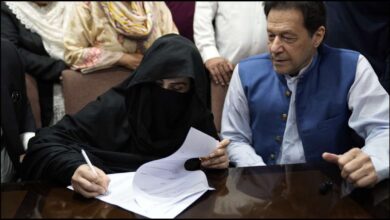Rare Relief For Khartoum Civilians Resulted From The Sudan Ceasefire
Residents in the Sudanese capital Khartoum reported a welcome break in hostilities on Saturday when a 24-hour truce between two warring generals went into effect, but few thought it would last.
Since the army leader, Abdel Fattah al-Burhan, and his former deputy, Mohamed Hamdan Daglo, who is in charge of the paramilitary Rapid Support Forces (RSF), started fighting in the middle of April, fighting has erupted across the north African nation.
Since the battle started, several truces have been reached and broken, and when the most recent effort failed at the end of May, Washington imposed sanctions on both opposing generals.
At least momentarily, the airstrikes and artillery barrages that had been shaking larger Khartoum virtually every day stopped, enabling the besieged inhabitants to leave their homes and get the food they so urgently needed.
People were observed rushing to stock up on fruit and other necessities at one Khartoum market. “The truce is a chance for us to get some food supplies after we lived on rationed quantities in recent days,” said Mohamad Radwan, one of the shoppers.
Hajar Youssef said that she had been outside in search of an open drugstore in order to get insulin for her diabetic mother. Unfortunately, I was unable to locate one.
Many individuals voiced their dissatisfaction at the promised ceasefire’s narrow reach.
“A one-day truce is much less than we aspire for,” said Mahmud Bashir, a resident of Khartoum North. “We eagerly anticipate the end of this damned war.”
According to Ali Issa, a bus station staffer, many people were utilizing the ceasefire to leave the city for the more secure areas.
He said, “Today, numbers… have significantly increased, perhaps even doubled.”
Mediator’s caution
Regarding the second major theater of combat in the country, the volatile western area of Darfur, there was no immediate information on whether the truce was being observed.
When the current cease-fire was declared on Friday, US and Saudi mediators issued a warning to the warring parties that they would end diplomatic efforts if they failed to honor their promises this time.
The discussions, which have been put on hold since late last month in the Saudi city of Jeddah, “will be forced to consider adjourning” “Should the parties fail to observe the 24-hour ceasefire,” they warned.
Aly Verjee, a Sudan expert, said that he could not see many reasons why this ceasefire should be any better than others that came before it.
“Unfortunately, the incentives have not changed for either party, so it’s hard to see that a truce with the same underlying assumptions, especially one of such short duration, will see a substantially different result,” said Verjee, a researcher at the University of Gothenburg in Sweden.
The Armed Conflict Location and Event Data Project estimates that over 1,800 individuals have died in the conflict.
According to the United Nations, about two million people have been displaced, including 476,000 who have sought asylum in neighboring countries.
Mediator’s caution
The mediators from Saudi Arabia and the US said that they “share the Sudanese people’s frustration about the uneven implementation of previous ceasefires.”
The army declared its adherence to the truce and claimed it had “agreed to the proposal.”
According to the paramilitary RSF, “We affirm our full commitment to the ceasefire.”
Both announcements warned against breaches by their opponents while claiming that the ceasefire may benefit humanitarian activities.
According to the US-Saudi statement, “If observed, the 24-hour ceasefire will present an important opportunity… for the parties to undertake confidence-building measures that could permit resumption of the Jeddah talks.”
Following Volker Perthes’ “persona non grata” designation by Burhan-aligned Sudanese authorities on Thursday, who claimed that he had taken sides, a truce was proclaimed on Friday.
Later, UN leader Antonio Guterres, who is now in the Ethiopian capital Addis Ababa for negotiations, reaffirmed his support for Perthes.
The theory of persona non grata is not applicable to or in respect of United Nations officials, Guterres said via his spokesperson.
Perthes’ attempts to restart Sudan’s transition to civilian government, which was thwarted by a coup in 2021 by the two generals before they split out, have been shelved by the conflict.
Additionally, it has made it more difficult to coordinate global efforts to provide the estimated 25 million people who require emergency aid.







